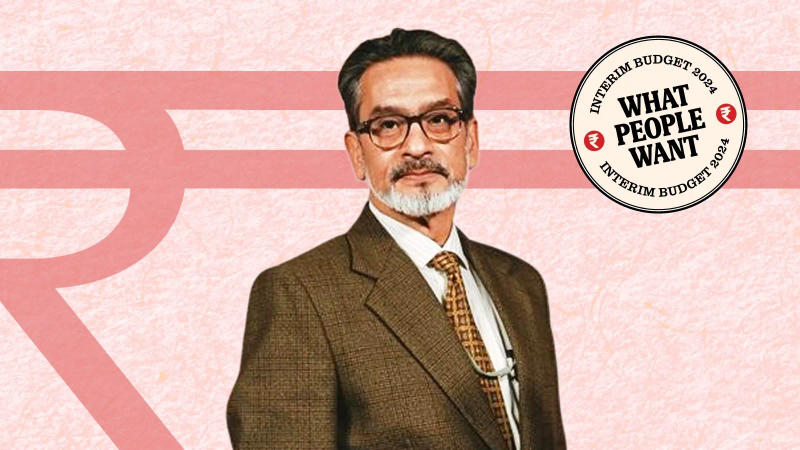Published 13:05 IST, January 9th 2024
Vote on Account wise way of going about interim budget: Sen
Sen also shed light on various aspects of the economy and expectation.

Budget buzz: Finance Minister Nirmala Sitharaman is all set to present the interim budget 2024-2025. This is for the first time when Sitharaman will be presenting the interim budget. While addressing a gathering of corporate honchos at one of the events of the Confederation of Indian Industry (CII), Sitharaman clarified her intention, and said, “The budget this year will be just a vote-on account.”

Pronab Sen, one of India’s renowned economists and former chief statistician of India in an exclusive conversation with Republic Business said, “What the FM has said is sensible. You are coming into an election, you do not want to saddle the next government, whoever is coming. All you do is just vote on account, which is essentially what went there last year and is being continued for the few months of this year before the next budget is presented.”
Sen added further that in the interim budget speech, “You make promises, saying that we have left enough space, so that if we come back, we present the full budget, this is what we will do.”
Edited excerpts:
On Fiscal Deficit
We will probably meet the fiscal deficit target this year which stands at 5.9 per cent. I don't think that is a tall ask, because the fiscal deficit target was not that demanding. Next year, which is going to be the real issue because that is when you are having a large deficit correction. From next year, the correction of over 0.8 per cent is a tall task.

On Divestment and Disinvestment
Less receipts from divestment or disinvestment is perhaps not the biggest problem. It is a problem, it is the way in which budgets are formed. Budgets are not only about the revenue and expenditure intentions of the government. They are also meant for political signalling. Also, I accept that market conditions are not favourable which is also derailing the divestment process.
Divestments are relatively easy. All you have to do is to issue more shares, sell them in the market and dilute the government's stake. Disinvestment is much tougher. Disinvestment has to be done carefully. And that takes time. So they may have announced it, but just the preparatory work is going to take time. And that's a good thing, because you don't want to hurry things through just because you need some money. That's a bad way to do it.
Not meeting divestment target
Now, think about the really big one, Mahatma Gandhi National Rural Employment Guarantee Scheme (MGNREGS). What we do know is that the year before, the budgeted amount was Rs 60,000 crore and subsequently the government allocated Rs 1,20,000 crore. Why? It is not because the government did not know that they would have to increase the allocation, which they already started doing.
That was essentially a way of bringing the fiscal deficit down. You have the disinvestment targets, the government knew it was not going to meet them. But that also helps to bring the fiscal deficit down.
On sustained tax buoyancy
Now, it's difficult to say whether the robust direct tax growth will be sustained in the long run as it depends upon many reasons. The lazy way of doing it is to say that there is better compliance.
Updated 12:22 IST, January 31st 2024




